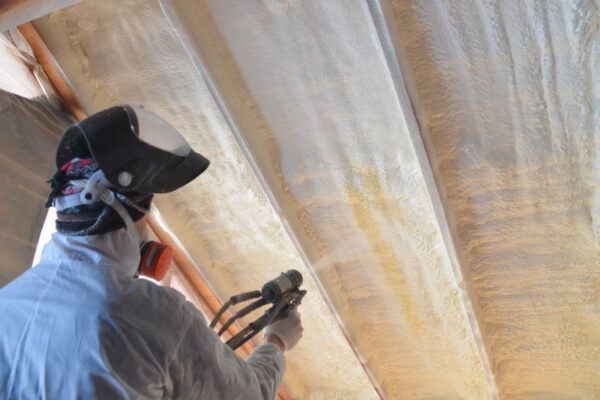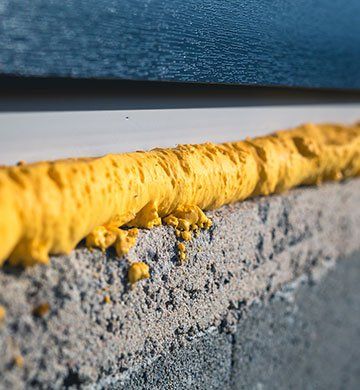Top Reasons to Pick Spray Foam for Your Next Insulation Project
When taking into consideration insulation options for your next project, spray foam stands out due to its outstanding efficiency attributes and effectiveness advantages. As you weigh your options, checking out the versatile applications and long-term advantages of spray foam may expose engaging reasons to incorporate it into your insulation method.
Superior Insulation Performance

The high R-value of spray foam, which gauges its thermal resistance, is another vital benefit. Closed-cell spray foam, as an example, can attain an R-value of as much as 6.5 per inch, dramatically outperforming fiberglass batts and cellulose. Spray foam insulation develops an impermeable seal, which lessens thermal linking and decreases the potential for mold and mildew development due to moisture buildup.

Power Effectiveness Conveniences
The energy performance advantages of spray foam insulation are significant, further enhancing its allure as a leading choice for building insulation. One of the key benefits is its remarkable thermal efficiency. Spray foam expands upon application, producing a closed seal that reduces air leaks, which is a common source of energy loss in conventional insulation products. By efficiently minimizing thermal bridging, it maintains a regular interior temperature, consequently reducing cooling and heating expenses.
Additionally, spray foam insulation flaunts a high R-value per inch, which implies it offers extra thermal resistance in much less room contrasted to options like fiberglass or cellulose (Spray Foam). This efficiency not just adds to instant energy financial savings but also advertises long-term sustainability by reducing the general power usage of a building
Furthermore, the implementation of spray foam can certify house owners for energy effectiveness incentives and tax obligation credits, including financial benefits to its energy-saving capabilities. In an era where energy preservation is critical, selecting spray foam insulation not just enhances comfort but likewise straightens with ecologically liable practices, making it a sensible choice for both property and industrial jobs.
Wetness and Mold And Mildew Resistance
Provided its unique make-up and application technique, spray foam insulation offers exceptional moisture and mold and mildew resistance, making it an optimal selection for numerous settings. The closed-cell structure of spray foam develops a solid barrier that successfully seals potential moisture ingress, consequently lowering the probability of mold development. Unlike conventional insulation products, which can soak up water and provide a reproduction ground for mold and mildew, spray foam remains unsusceptible moisture, improving the general health and wellness of the indoor environment.
Additionally, the application process of spray foam includes expanding and loading splits and spaces, ensuring a tight seal that decreases air leakages. This characteristic not just enhances energy performance yet likewise assists control moisture levels within the room. Proper moisture control is critical for protecting against mold and mildew and mold, making spray foam insulation especially beneficial in areas susceptible to moisture, such as basements and crawl rooms.
Along with its moisture-resistant residential properties, spray foam is also naturally resistant to mold and mildew development. This particular makes certain that structures and homes continue to be healthy and balanced and secure with time, giving peace of mind to homeowners and building managers alike.
Long-Term Cost Cost Savings
Buying spray foam insulation yields considerable lasting price financial savings, largely through boosted power performance. Unlike traditional insulation products, spray foam produces an impermeable seal that decreases air leak. This decrease in drafts causes reduce heating and cooling prices, as heating and cooling systems do not have to work as tough to keep comfortable indoor temperatures.
Furthermore, the superior insulating homes of spray foam imply that homes stay constantly comfortable year-round, reducing reliance on energy-consuming home appliances. Over time, these cost savings can collect, leading to a visible decline in utility costs.
In addition, spray foam insulation contributes to the durability of your home's framework by stopping moisture build-up and mold and mildew growth, which can bring about costly fixings. With its toughness and resistance to settling, spray foam preserves its effectiveness over the years, making sure that the preliminary financial investment remains to settle.
Fundamentally, choosing spray foam insulation not only improves your home's power performance but likewise converts into considerable long-lasting monetary benefits, making it a sensible financial investment for property owners seeking to view it now decrease costs while improving comfort and sustainability.
Versatile Application Choices
Many application choices make spray foam insulation a very versatile choice for a selection of structure projects (Spray Foam). This adaptability enables it to be successfully made use of in property, business, and industrial settings, providing to varied insulation demands
Spray foam can be used in attic rooms, walls, crawl rooms, and also roof coverings, offering seamless coverage that eliminates spaces and gaps where air leaks generally take place. Its capability to increase upon application ensures a limited seal, which is necessary for energy efficiency and dampness control.
Furthermore, spray foam insulation is available in various formulations, including open-cell and image source closed-cell kinds, enabling customized remedies based upon particular task needs. Open-cell foam is lighter and much better fit for soundproofing, while closed-cell foam uses premium insulation and structural integrity, making it ideal for locations exposed to wetness.
In addition, spray foam can be used in hard-to-reach rooms, boosting its viability for retrofitting existing frameworks. With the capacity to adhere to different substratums, consisting of steel, wood, and concrete, Visit Your URL spray foam insulation stands apart as a flexible alternative that fulfills the needs of modern structure practices.
Verdict
In final thought, spray foam insulation arises as an exceptional alternative for insulation projects due to its extraordinary thermal resistance, energy efficiency, and ability to develop airtight seals that protect against dampness and mold growth. Selecting spray foam insulation ensures a thorough solution that meets the demands of contemporary building and energy efficiency requirements.
When it comes to attaining optimal energy effectiveness in household and commercial buildings, spray foam insulation stands out for its exceptional insulation efficiency.The power effectiveness benefits of spray foam insulation are substantial, additional improving its allure as a top option for developing insulation.Spending in spray foam insulation yields significant long-term cost savings, mainly through boosted power efficiency.In verdict, spray foam insulation arises as an exceptional choice for insulation tasks due to its phenomenal thermal resistance, energy performance, and capacity to produce closed seals that avoid moisture and mold and mildew growth. Selecting spray foam insulation guarantees a thorough solution that satisfies the demands of modern construction and power performance standards.